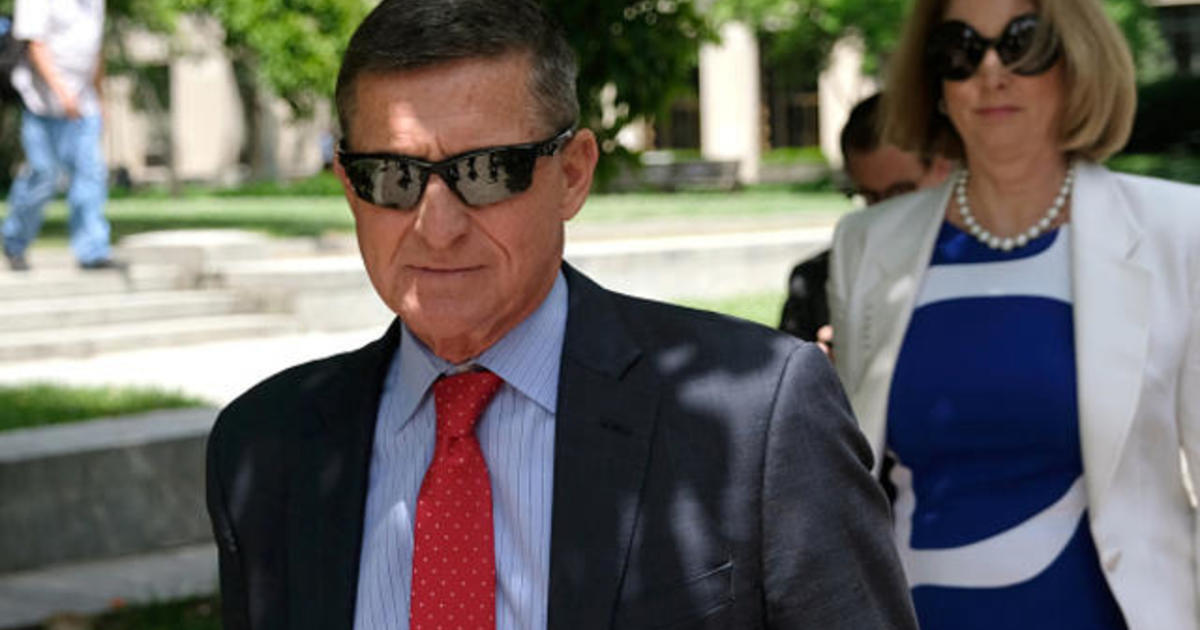Judges on the full D.C. Circuit Court of Appeals intimated Tuesday that they’re hesitant to force a lower court judge to dismiss the criminal charges against former national security adviser Michael Flynn.
The nearly four-hour hearing conducted by teleconference before 10 circuit court judges challenged arguments brought by Flynn’s attorney and the government that District Court Judge, Emmet Sullivan, had acted outside his constitutional authority by not immediately granting the Justice Department’s request to dismiss the charges against Flynn.
The appeals court will also review whether or not Sullivan should be removed from the case because of what Flynn’s team deems “glaring bias.”
The government and Flynn’s attorney argued that the executive branch should be able to make prosecutorial decisions without being second-guessed by the judicial branch. But several jurists asked why courts should not have any authority to examine the government’s reasons for dismissing charges, as Sullivan wishes to do in this case.
Acting Solicitor General Jeffrey Wall argued that under separation of powers, discretion belongs solely to the executive branch, and that a “court cannot keep a prosecution alive.”
During arguments, Wall revealed that Attorney General William Barr, who ultimately made the decision to drop the criminal case against Flynn, may have more non-public information at his disposal than was made available in the earlier filing to dismiss the case.
“I just wanted to make clear that it may be possible that the Attorney General had before him information that he was not able to share with the court,” Wall explained. “What we put in front of the court were the reasons that we could, but it may not be the whole picture available to the executive branch.”
Sidney Powell, an attorney for Flynn, maintained that Sullivan had gone too far when he did not immediately dismiss the case, and instead called for briefs and a hearing on the matter, and appointed former Judge John Gleeson as an amicus – or a friend of the court — to argue the side in opposition to the Justice Department and Flynn. Powell accused Sullivan of orchestrating a process that “is beyond the pale.”
Several judges questioned Powell on the role a jurist should play in situations in which the government dismisses charges. Powell replied that a judge should not be a “substantial” figure, characterizing it as a “pretty ministerial” position. Judge Thomas B. Griffith disagreed with her argument. “That’s not helpful Ms. Powell,” Griffith said. “The judge has to do some thinking about it. He’s not just a rubber stamp.”
Since Sullivan has not been able to hold a hearing, his lawyer, Beth Wilkinson, said that he has not come to any conclusions yet about the outcome of the case. “The parties’ speculation and fears are not proper claims for mandamus,” Wilkinson said. “Speculation about what might happen cannot be the rationale.” When asked if she could describe the line of questioning Sullivan may have for the parties if given the opportunity to hold his hearing, she was unable to answer, stating that since there has not been a full briefing on the matter, he may not have any questions at all.
In June, a three-judge panel ruled 2 to 1 in favor of Flynn, who had filed an emergency appeal after Sullivan did not immediately dismiss his case following the government’s move to dismiss the criminal charges against him. The three judges who made the initial ruling were part of Tuesday’s larger panel, which opted to rehear the matter after Sullivan appealed and asked for what is called an en banc hearing — that is, before the full court.
The Justice Department decided to dismiss the criminal case against Flynn in early May, having “concluded that the interview of Mr. Flynn was untethered to, and unjustified by, the FBI’s counterintelligence investigation” and that “it is not persuaded that the January 24, 2017 interview was conducted with a legitimate investigative basis.”
In December 2017 Flynn pleaded guilty to lying to investigators as part of the FBI probe that preceded the special counsel’s investigation into Russian election meddling and the Trump campaign. He admitted under oath twice that he had made false statements about conversations he had during the transition period with then-Russian envoy Sergey Kislyak about sanctions imposed by the Obama administration stemming from Russia’s interference in the 2016 election.
In February 2017, he was ousted after only weeks on the job as national security adviser. Nonetheless, Mr. Trump has continued to be vocal in his support of Flynn. In June, after the three-judge panel had published its ruling, the president tweeted that it was a “great” decision and asked, “Is James Comey and his band of Dirty Cops going to apologize to General Michael Flynn (and many others) for what they have done to ruin his life? What about Robert Mueller and his Angry Democrat Cronies – Are they going to say, SO SORRY? And what about Obama & Biden?”
